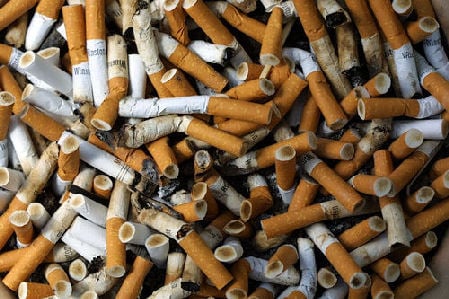California Gov. Jerry Brown signed a series of bills, including Senate Bill X2-7, into law which will raise California’s smoking age from 18 to 21 last Wednesday. The reforms, which take effect in early June, will also include restrictions on electronic cigarettes with respect to licensing sales and their use in public places as well as an expansion of no-smoking areas at public schools.
A stipulation in the bill exempts military personnel age 18 and over from the new restrictions.
Other legislation signed by the governor categorizes electronic cigarettes as tobacco products, which cannot be used in restaurants, theaters, bars or other areas where smoking has been previously banned.
California state Senator Ed Hernandez (D-San Gabriel Valley), who authored the bill, said that the new laws are a “victory” for this generation and for generations to come.
“[These laws] will save countless lives, reduce astronomical costs to the health care system, and cost very little because it uses existing enforcement mechanisms,” Hernandez told CNN.
The tobacco industry threatened to seek a referendum vote to overturn the bills increasing the smoking age and restricting e-cigarettes. The Smoke-Free Alternatives Trade Association said in a statement that it would educate voters about the industry and differences between vaporizers and cigarettes.
“California took a step backwards today by reclassifying vapor products as tobacco,” the group said. “Stigmatizing vapor products, which contain no tobacco, and treating them the same as combustible tobacco while actively seeking to economically penalize smokers attempting to switch is counterproductive to public health.”
When the bill was introduced, Altria tobacco company spokesman David Sutton said that the industry preferred the issue be handled by U.S. Food and Drug Administration.
“We believe states and localities should defer to this regulatory process and give the FDA, the [Institute of Medicine] and others the time to review the science and evidence, before enacting different minimum age laws,” Sutton said when the bill was first introduced in March.
The National Survey on Drug Use and Health reports that about 90% of tobacco users start before the age of 21, and about 80% first try tobacco before age 18. A 2015 Institute of Medicine study estimated that increasing the tobacco purchase age to 21 will result in 200,000 fewer premature deaths for those born between 2000 and 2019.
In 2014, the UC system joined more than 1,100 colleges and universities nationwide by implementing a systemwide smoke- and tobacco-free policy. UCSD Director of Health Promotion Services Deborah Pino-Saballett told the UCSD Guardian that she believes enforcement of this policy will increase within the next year, without explicit attribution to the new law.
“Currently, there is only educational enforcement, but there is growing interest on our campus and across the UC system for stronger enforcement including the issuance of citations,” Pino-Saballett said.
In light of the taxes being proposed for the 2016 ballot, Brown vetoed a bill that would allow voter approval of local tobacco taxes to pay for healthcare expenses for people with tobacco-related illnesses. In November, California residents will vote on a $2 increase in the state’s cigarette tax.








